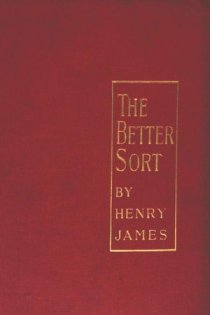The Beast in the Jungle

First edition (UK)
|
|
| Author | Henry James |
|---|---|
| Country | United Kingdom, United States |
| Language | English |
| Publisher |
Methuen, London Charles Scribner's Sons, New York City |
|
Publication date
|
Methuen: February 26, 1903 Scribner's: February 26, 1903 |
| Media type | Print (Hardback & Paperback) Published as part of the short story collection The Better Sort |
| OCLC | 24050323 |
The Beast in the Jungle is a 1903 novella by Henry James, first published as part of the collection, The Better Sort. Almost universally considered one of James' finest short narratives, this story treats appropriately universal themes: loneliness, fate, love and death. The parable of John Marcher and his peculiar destiny has spoken to many readers who have speculated on the worth and meaning of human life.
John Marcher, the protagonist, is reacquainted with May Bartram, a woman he knew ten years earlier, who remembers his odd secret: Marcher is seized with the belief that his life is to be defined by some catastrophic or spectacular event, lying in wait for him like a "beast in the jungle." May decides to buy a house in London with the money she inherited from a great aunt, and to spend her days with Marcher, curiously awaiting what fate has in store for him. Marcher is a hopeless egoist, who believes that he is precluded from marrying so that he does not subject his wife to his "spectacular fate".
He takes May to the theater and invites her to an occasional dinner, but does not allow her to get close to him. As he sits idly by and allows the best years of his life to pass, he takes May down as well, until the denouement where he learns that the great misfortune of his life was to throw it away, and to ignore the love of a good woman, based upon his preposterous sense of foreboding.
Marcher may appear so eccentric and unrealistic in his obsession that his fate could seem irrelevant and unconvincing. However, many critics and ordinary readers have found that his tragedy only dramatizes, with heightened effect, a common longing for an exalting experience that will redeem an otherwise humdrum existence, although most individuals will not endure anything like Marcher's final revelation at May's graveside.
The story has been read as a confession or parable about James' own life. He never married and possibly never experienced a consummated sexual relationship. Although he did enjoy a thorough experience of aesthetic creativity, it is possible that he still regretted what he called the "essential loneliness" of his life. This biographical relevance adds another level of meaning to "The Beast in the Jungle."
...
Wikipedia
